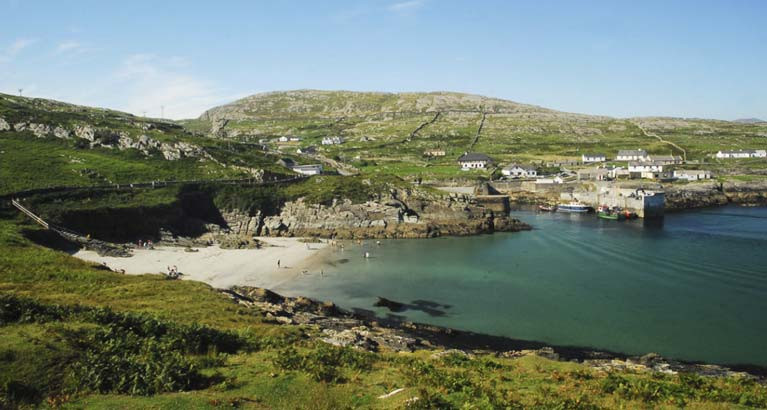Islanders on Inishturk, Co Mayo, say they cannot risk essential repairs being carried out to a storm-damaged mobile phone transmitter for the west coast due to the risk of contracting the COVID-19 virus.
Inishturk development manager Mary Helena O’Toole said that some 60 per cent of the population on Inishturk is over 65 years of age, and cannot be exposed to any risk.
"Islanders are also affected by the loss of mobile phone coverage, but we believe our health has to be the priority, at least while these current measures are in place,” she said.
However, a former Fine Gael councillor Austin Francis O’Malley says many residents on the south Mayo and Connemara mainlands have limited or no phone cover, and fear not being able to call a doctor if the mast is not repaired.
The transmitter on Inishturk, 15 km west of Mayo, was damaged during Storm Dennis in mid-February, which has been classified as one of the most intense extratropical cyclones ever recorded.
Both islanders and mainland residents extending from the little Killary in north Connemara up to an area close to Louisburgh, Co Mayo, lost mobile phone cover in some instances.
Mr O’Malley said that he first became aware of the problem when he encountered difficulties in alerting members of the group water scheme he manages.
“We appreciate the position of the islanders on Inishturk, and we have to credit them for refusing access, but Vodafone did have time to fix this before the COVID-19 restrictions came in,” he said.
Mr O’Malley said he had contacted acting rural affairs minister Michael Ring about the issue.
“I am in the middle of lambing sheep, and I wasn’t able to contact my son by mobile phone when he was close by,” he said. “However, it is elderly and vulnerable residents I am most concerned about, as many don’t have landlines anymore.”
It is understood that initial technical work on the mast was underway, but had not been completed when restrictions were introduced to curb the spread of the COVID-19 virus.
Vodafone was informed by Inishturk residents that they could not permit a technician travelling by ferry from Roonagh Pier in Mayo to land, due to risks of infection.
The technician was refused on two attempts to travel.
The ferry service has cut back to three sailings a week, with only once a week return trips, and is not taking any visitors.
Vodafone Ireland said it was “aware of a network issue currently affecting some of our customers in parts Galway and Mayo, due to storm damage on Inishturk”.
“We are working hard to resolve this issue and our network repairs crew are standing by to carry out works and will abide by all COVID-19 health and safety measures,” it said.
“Discussions are ongoing with third parties on the island in relation to access,” it said. It said it “sincerely apologise for the inconvenience caused”, and thanked people for their patience.



























































